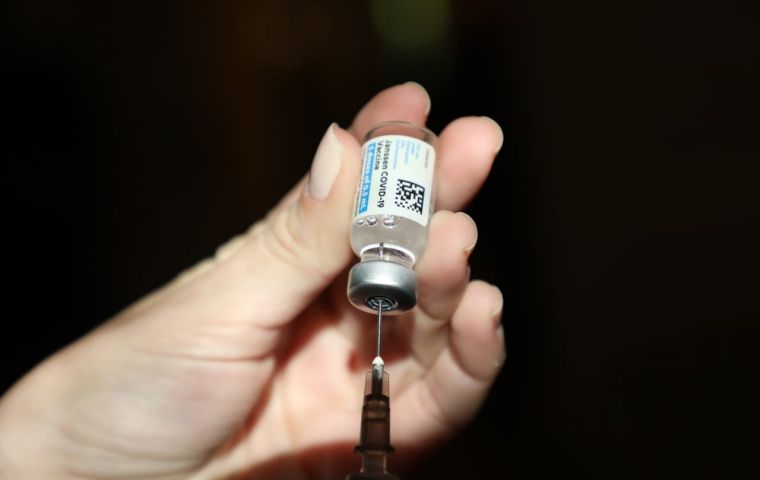MercoPress. South Atlantic News Agency
Rio de Janeiro allows pregnant women to mix one dose of Pfizer with one of AstraZeneca vaccines
 Soranz listed six clinical studies which would “demonstrate safety and efficacy”
Soranz listed six clinical studies which would “demonstrate safety and efficacy” Health authorities in the Brazilian city of Rio de Janeiro announced Tuesday that they had approved combination doses of Pfizer and AstraZeneca anticoronavirus vaccines on pregnant women.
Rio de Janeiro will thus become the first Brazilian regional capital to allow mixing the two drugs, a practice already endorsed or recommended in Chile, Spain, Germany, Portugal, Canada and South Korea.
Vaccination with AstraZeneca / Oxford for pregnant women has been suspended in Brazil since last May, on the recommendation of the National Health Surveillance Agency (Anvisa) due to its suspected causing serious episodes of thrombosis. After that, health care practicioners turned to either the Sinovac or Pfizer-BioNTech drugs for pregnant women.
Brazil's Health Minister had also advised patients who had received the first dose of AstraZeneca-Oxford should complete their treatment with the same formula around one and a half months after delivery.
However, based on the positive results from international studies, the Rio de Janeiro Mayor's Office authorized this Tuesday to mix the two immunizers for pregnant women.
“Following our committee's recommendation: pregnant women who took the first dose of the AstraZeneca vaccine will be able, through a risk-benefit assessment with their doctors, to take the second dose with the Pfizer vaccine 12 weeks after the first dose”, Rio de Janeiro Health Secretary Daniel Soranz said on social media.
Vaccination against covid-19 began in Brazil on January 17 and five months later 34% of the population has received the first dose, but only 12% are on the full schedule. With almost 515,000 deaths and 18.5 million infected, Brazil is the country in Latin America hardest hit by the pandemic the second in the world with the most fatalities and the third with the most positives, after the United States and India.
As per the new decision, pregnant women in Rio will have to see their obstetrician and bring a certificate so that she can receive the booster dose — respecting the three-month window.
“Several pregnant women took AstraZeneca before stopping [the application]. These pregnant women could now take Pfizer as a second dose. It already has some interchangeability studies. Even the Ministry of Health itself already has data on people who took it wrong. It could complete the scheme of several people: people who had a reaction to AZ in the first one,” said Ethel Maciel, epidemiologist and professor at the Federal University of Espírito Santo (Ufes).
Following Anvisa's recommendation, pregnant women were being immunized, in the first dose, only with CoronaVac or Pfizer.
But Soranz listed the following six clinical studies, with about 2,000 participants in total, which would “demonstrate safety and efficacy of heterologous application of Pfizer and AZ” — or a combination of the two:
* South Korean Government: 500 military professionals
* Berlin University Hospital (Germany): 129 health care professionals between 18 and 64 years old
* Carlos III Institute (Spain): 663 volunteers between 18 and 59 years old
* Oxford University (United Kingdom): 463 volunteers with an average age of 57
* University of Saarland (Germany): 250 health care professionals
* University of Ulm (Germany): 26 health care professionals
Based on these surveys, according to Soranz, different countries sometimes recommended and sometimes authorized the mixing of doses.
Those recommending the combination are: Germany, Canada, South Korea, Chile, Denmark, France, Finland, Norway, Portugal and Sweden
Those allowing the combination are: Spain, UAE, the United Kingdom and Italy.




Top Comments
Disclaimer & comment rulesCommenting for this story is now closed.
If you have a Facebook account, become a fan and comment on our Facebook Page!